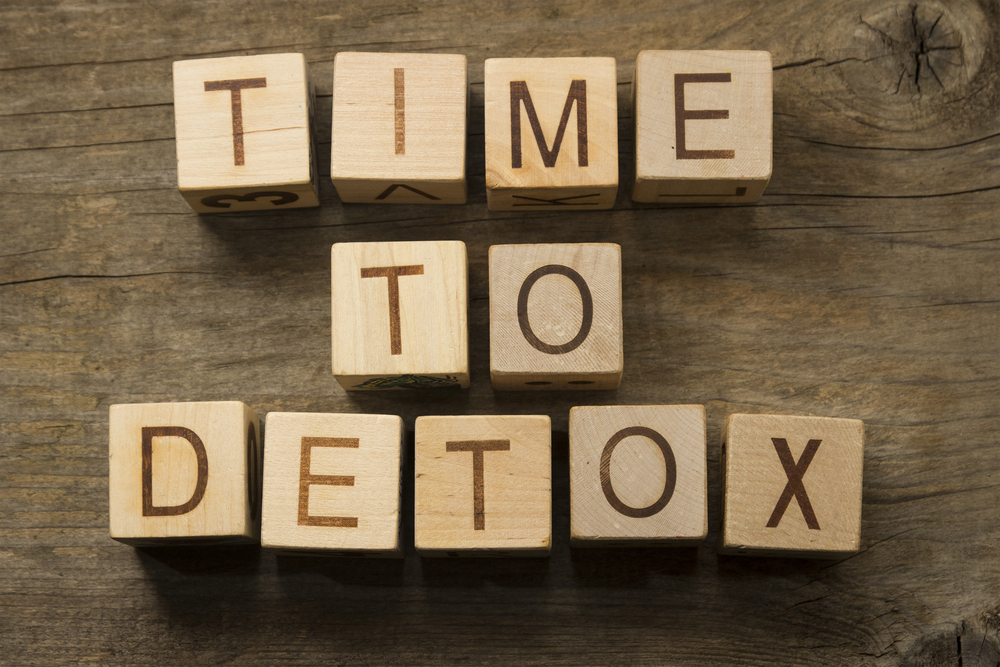
NABHS provides access to detox programs for safe and effective detoxification of toxins from the body. This is done under medical supervision and support.
Success Hinges On The Treatment Plan
1. Drug And Alcohol Detox
Addiction to drugs and alcohol can take a toll on one’s body and mind. Drug and alcohol detox is the first phase in the recovery process, and it is essential to understand its significance. Detox is the process of ridding the body of harmful substances and toxins that build up due to addiction. It can be challenging, but with the right approach, it can also be a transformative experience that leads to long-term recovery.
Initial Stage Of Recovery
The first phase of recovery may come with its unique challenges, as the body and mind go through withdrawal symptoms. Withdrawal symptoms can be both physical and emotional, and they vary depending on the substance and the severity of the addiction. Common withdrawal symptoms include nausea, tremors, anxiety, and depression. It is important to note that withdrawal can be life-threatening, especially for people with severe addiction, which is why seeking expert assistance is crucial.
Medical Detox
For drugs and alcohol treatment, medical detox is the most intensive and supervised approach, where patients are monitored around the clock by medical professionals. Medical detox is essential for people who have severe addiction and symptoms of withdrawal. It is also recommended for people with co-occurring mental health conditions, such as depression and anxiety.
Outpatient Detox
Outpatient is another form of detoxification option that can be suitable for people with less severe addiction and withdrawal symptoms. It involves visiting a mental health facility for routine check-ups and medication management. This type of detox is less intensive than medical detox, but it still provides medical supervision and support There are online supports too where you can get treated right from the comfort of your house if you are homebound or are under a physician supervision.
Inpatient Detox
Inpatient detox is a more in-depth drug and alcohol treatment program where patients live at the rehab center for the entire duration of the program. Inpatient detox is often recommended for people who have relapsed multiple times or have additional mental health issues. Inpatient detox provides 24/7 medical supervision and support, and it can also provide a safe and structured environment for your journey to healing.
Drug And Alcohol Rehabs Near Me
It is wise to seek medical help for drug and alcohol detox at the earliest, as early intervention can not only help with the extreme withdrawal symptoms but also avoid unnecessary mishaps with life. It also provides a safe and effective environment for your or your loved one’s recovery.
Detox is only the first step in overcoming addiction, and it is essential to follow up with comprehensive treatment programs, such as counseling, therapy, and support groups from the nearest drug and alcohol facilities.
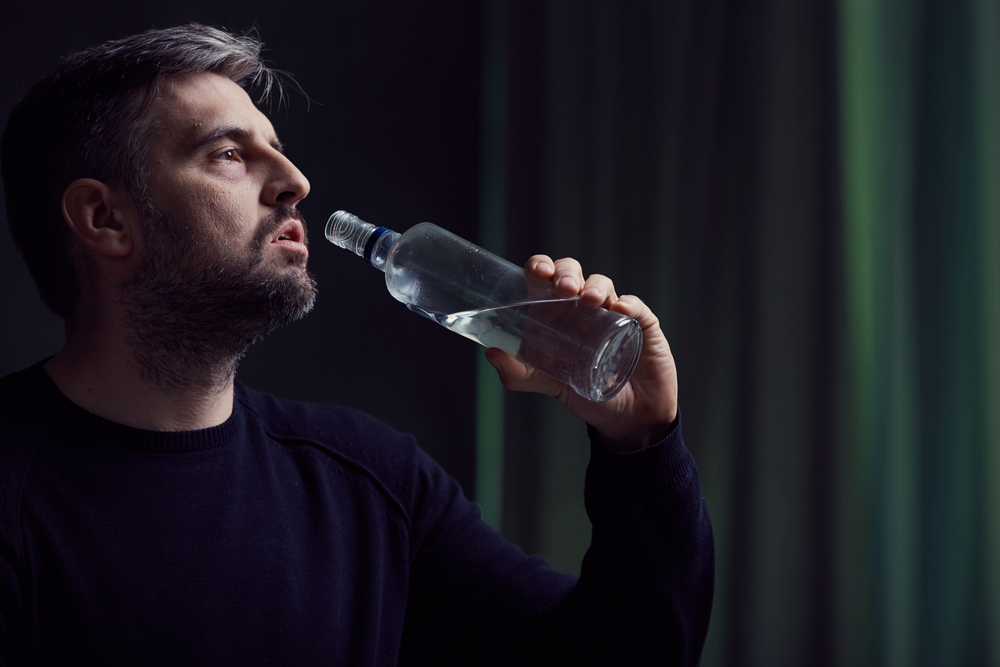
2. Alcohol Detox
Alcohol is a widely used substance that has both short-term and long-term impacts on the body. While moderate alcohol consumption may not necessarily be harmful, heavy drinking over an extended period can cause serious health problems, including liver disease, cardiovascular disease, and neurological damage.
Alcohol detoxification is an essential process for the ones who are dependent and want to get rid of the toxins from the body. It addresses the withdrawal symptoms that show up after being addicted to alcohol for a long time. The aim of detox is to provide a secure and supportive atmosphere for people to cease drinking habits safely. This also helps the patients’ body be ready for the next alcohol addiction treatment.
Detox can be a complex and potentially hazardous process if undertaken without medical supervision since withdrawal symptoms can range from mild to severe, and in some cases, they can be life-threatening.
Alcohol Detox Process
The medical team performs a comprehensive evaluation during alcohol detoxification to develop a customized treatment strategy that caters to the individual’s unique requirements.
In the stabilization stage, the patient will not only be under strict observation of their vital signs but also receive emotional support for faster recovery, and will be prescribed medication to alleviate withdrawal symptoms.
In the transition stage, patients are prepared for further treatment, which may include counseling, therapy, and support groups. This stage is critical to preventing relapse and maintaining sobriety.
The length of alcohol detoxification varies from person to person. As every individual may be addicted to alcohol on different scales. Not forgetting the patient’s current and past medical history, and other factors that can affect the detox period from weeks to sometimes months.
The symptoms of alcohol withdrawal can be distressing and uncomfortable, and they typically peak within 48 to 72 hours after the last drink.
Alcohol Detox Withdrawal Symptoms
- Anxiety
- Nausea and vomiting
- Tremors
- Headaches
- Sweating
- Insomnia
- Irritability
- Seizures
- Delirium tremens (DTs)
What Are Delirium Tremens
Delirium Tremens (DTs) is a significantly more severe type of alcohol withdrawal that manifests in about 5% of patients undergoing alcohol detoxification. Symptoms include severe confusion, hallucinations, fever, and seizures. DTs can be fatal and require immediate medical attention.
Stages Of Alcohol Withdrawal
- Mild withdrawal: This stage usually occurs within 6-12 hours after the last alcohol consumption and may include symptoms such as tremors, anxiety, and sweating.
- Moderate withdrawal: This phase of withdrawal occurs 12-48 hours after the last drink. It may include symptoms such as hallucinations and increased heart rate.
- Severe withdrawal: This stage can occur 48-72 hours after the last drink taken and may include symptoms such as seizures and delirium tremens (DTs), which are known to have confusion, fever, and severe tremors.
Medications Used During Alcohol Detox
Certain medications are brought to light while getting alcohol withdrawal symptoms under control and reduce any chances of impediments throughout the entire detoxification process.
Among the most commonly used medications during alcohol withdrawal are:
- Benzodiazepines: These are known to comfort anxiety in the patients and prevent seizures whilst detox. They work by increasing the activity of GABA, a neurotransmitter that helps to calm the brain.
- Anti-psychotics: These medications are prescribed to address intense agitation and hallucinations that may occur during detoxification.
- Antidepressants: These are widely known for managing the mental health condition such as depression and anxiety that may arise during detox and throughout alcohol addiction treatment.
Support During Alcohol Detox
Alcohol detoxification can be a strenuous experience for people trying to quit their drinking habits safely, taking a toll on both their physical and mental health. As a result, having a solid support system in place is critical. Family members, friends, and addiction counselors can provide emotional support and encouragement during this difficult time.
Detox isn’t the ultimate cure. Aftercare is as important as detox which include behavioral therapy, support groups, and medication-assisted treatment that addresses the causes of alcohol addiction and helps acquire coping skills to sustain sobriety.
Alcohol Detox Treatment Centers
For optimum safety and treatment results, alcohol detox needs to be performed in a trained inpatient or residential facility with a team of certified medical experts. A complete team of healthcare professionals, such as a psychiatrist, counselor, therapist, and 24-hour support personnel, is a must in the treatment program.
Obtaining Assistance For Alcohol Detox Side Effects
If you find yourself or a loved one floundering with the symptoms of alcohol withdrawal, it is of the utmost importance to seek medical attention since it can prove to be life-threatening if not treated promptly. Why hold off any longer? Reach out to an alcohol rehab program that is secure and comfortable for the assistance you require at +1 (917) 267 8635 . A compassionate care and support journey toward a healthier and addiction-free life.
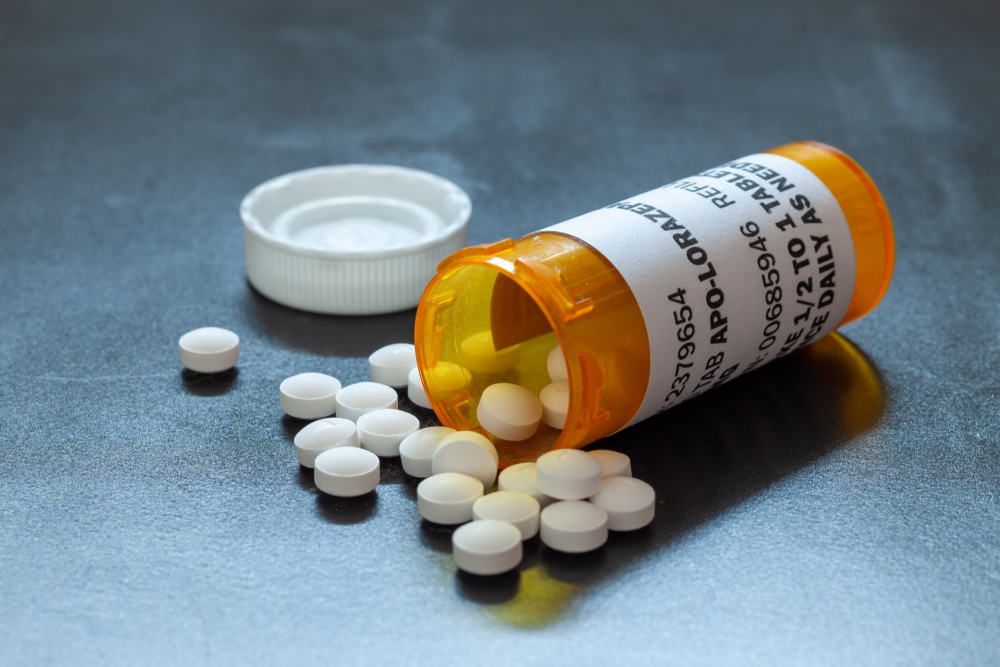
3. Benzodiazepine Detox And Treatment
Benzodiazepines, also known as benzos, are the cool kids on the block when it comes to treating anxiety and sleep disorders. But what happens when the party’s over, and you find yourself hooked on these prescription drugs?
Benzodiazepine addiction is a sneaky beast that can creep up on you before you even realize it. One minute you’re taking them as prescription medicines; the next, you’re taking them more often, in higher doses, and for longer periods than recommended. Before you know it, you’re addicted.
The thing is, benzodiazepine addiction is no lighthearted issue. It can be incredibly challenging to quit these drugs on your own, along with withdrawal symptoms that can be intense and even life-threatening. That’s where treatment comes in.
Withdrawal Symptoms Benzodiazepine Addiction
People addicted to benzodiazepine can have a physical dependence, and if abruptly discontinued, it can cause withdrawal symptoms. These symptoms can be severe and can last for several weeks, even months. Some common benzodiazepine withdrawal symptoms include:
- Anxiety
- Insomnia
- Agitation
- Tremors
- Sweating
- Muscle ache
- Nausea and vomiting
- Seizures
- Delirium
- Psychosis
Therapy Can Be Transformative
The bottom line is that benzodiazepine addiction is just as treatable as any other addiction, and there’s hope for a better life on the other side. Benzodiazepine treatment is like a lifeline that can help you break free from addiction and get your life back on track. So, if you’re struggling with addiction, don’t wait to get help. The sooner you start treatment, the sooner you can begin living the life you deserve.
Phase one of the treatment is detoxification. During detox, medical professionals will slowly taper you off the drug to lessen the effects of withdrawal symptoms. They may also use other medications to help ease symptoms and make the process more comfortable. It’s important to remember that detox can be risky and requires medical expert assistance at each step of the process.
Inpatient And Outpatient Treatments
Once detox is complete, comes phase two to rehabilitate where the mental health professional will begin with the actual treatment. There are two types of treatment options available for patients, one is inpatient treatment and the other outpatient treatment.
Inpatient treatment involves staying at a treatment center to undergo therapy and counseling. One will get to learn how to identify and change negative thought patterns and behaviors that contribute to addiction.
Outpatient treatment allows you to receive treatment while continuing to live at the comforts of the home, and support groups like Narcotics Anonymous provide a supportive community of people who understand what you’re going through and accordingly the treatment plan is outlined.
The final phase of treatment is the maintenance program. This involves ongoing maintenance to prevent relapse in patients. This may involve ongoing therapy sessions, participation in support groups, and continued monitoring to prevent a return to drug use.
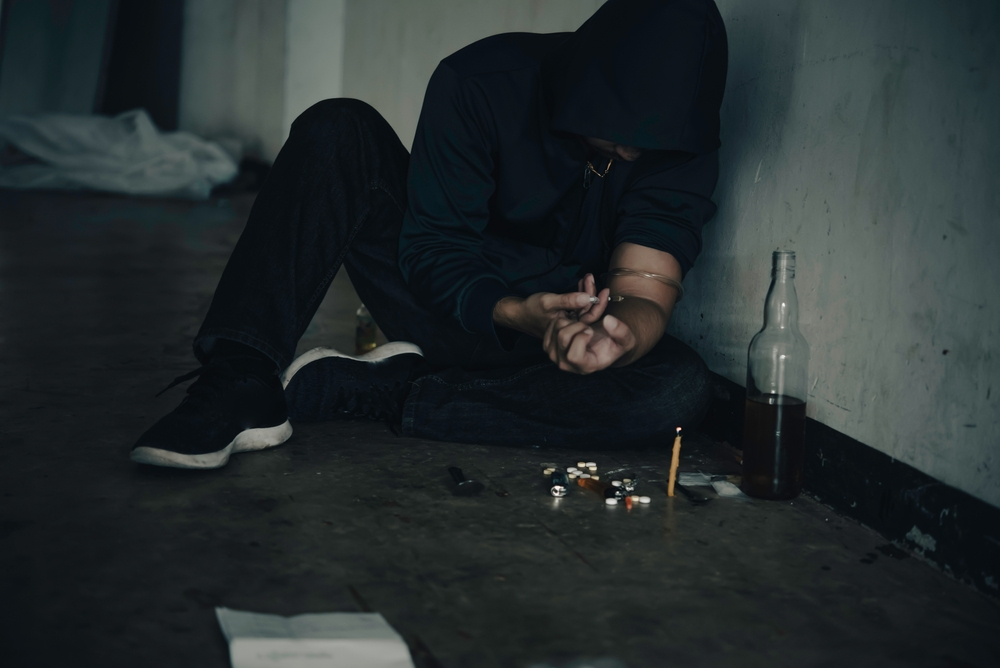
4. Heroin And Opiate Detox Treatment
Understanding The Addiction
Heroin and opiates are powerful drugs that can lead to addiction in no time. For many, the cycle of addiction can seem never-ending, with each day marked by a desperate urge to obtain and use more of the drug. To understand better, imagine for a moment that you’re a butterfly, flitting about from flower to flower, enjoying the sweet nectar of life.
Everything is beautiful and carefree until suddenly, you get trapped in a sticky spider web. You struggle and fight, but the more you try to break free, the more tangled and hopeless you become. That’s how it feels to be addicted to heroin or opiates and attempting to be free – trapped, helpless, and stuck in a cycle of addiction that seems impossible to escape.
But, just as a butterfly may escape a spiderweb with the proper tools and techniques, a person can beat addiction with the right detox and therapy.
To begin with the treatment, detoxification is the first initiative taken. Detox from heroin and opiates involves driving the drugs out of the body, which can be a painful and challenging process since withdrawal symptoms can be severe if not managed in an appropriate manner.
Withdrawal Symptoms
Symptoms can last up to several days or even weeks, depending on the severity of the addiction and the length of time the person has been using.
- Nausea
- Vomiting
- Sweating
- Diarrhea
- Sweating
- Trembling
- Intense drug cravings
Treatment For Heroin And Opiate Addiction
One of the most successful ways to manage withdrawal symptoms is through medication-assisted treatment. This consists of using medications such as methadone, buprenorphine, or naltrexone to help manage cravings and reduce withdrawal symptoms. This can be done in outpatient or inpatient treatment, depending on the patient’s requirements.
Once the detox process is complete, the next step is to begin treatment for the addiction itself. This can involve individual and group therapy, cognitive-behavioral therapy, and other evidence-based treatments that help the person to understand and manage their addiction triggers, develop coping strategies, and make positive changes in their life.
But treatment just doesn’t stop there – ongoing support and maintenance are critical aspects to preventing relapse and ensuring long-term recovery. This can include continued therapy, participation in support groups, and ongoing monitoring to ensure that the person stays on track and receives the support they need to stay sober.
Overall, heroin and opiate addiction treatment can be a challenging but gratifying experience. With the right support and approach, it’s possible to overcome addiction and regain control of one’s life. Whether through traditional therapies or unique approaches like equine therapy, there is hope for those struggling with heroin and opiate addiction.
Get help for any addiction that you or your loved one may be battling with. Call us at +1 (917) 267 8635 for more details and let us help you guide through the webs of addiction.

5. Stimulated Detox And Treatment
Stimulant detox treatment is a process of managing withdrawal symptoms associated with the cessation of stimulant drugs, such as cocaine, amphetamines, and methamphetamine. These drugs are highly addictive and can result in severe physical and psychological dependence.
Withdrawal symptoms from stimulants can vary in severity and duration, based on the individual’s level of dependence and the amount of drug used.
Common Withdrawal Symptoms
- Depression
- Fatigue
- Irritability
- Anxiety
- Insomnia
- Increased appetite
- Drug cravings
Treatment Process For Stimulant Detox
- Evaluation and Assessment: This phase involves an initial medical and psychological assessment performed by a mental health specialist to determine the individual’s physical and mental health status, degree of drug dependency, and any co-occurring conditions.
- Stabilization: During this stage, withdrawal symptoms are managed with medication and behavioral therapy. The goal is to stabilize the patient’s physical and mental health, reduce drug cravings, and prepare them for the next phase of treatment.
- Behavioral Therapy: During this period, a team of mental health experts addresses the underlying psychological and behavioral factors that contribute to drug use. Cognitive-behavioral therapy (CBT) and motivational interviewing are common approaches to help individuals develop coping skills, handle triggers, and prevent relapse.
- Aftercare: This phase involves ongoing support and treatment for the patients after detox, through outpatient treatment, support groups, and relapse prevention programs. Aftercare is equally necessary for maintaining recovery and preventing any future relapse.
Stimulant detox treatment is a complex process that requires a holistic approach to address the physical, psychological, and behavioral elements of addiction. With the right treatment and support, individuals can successfully detox from stimulants and achieve lasting recovery.
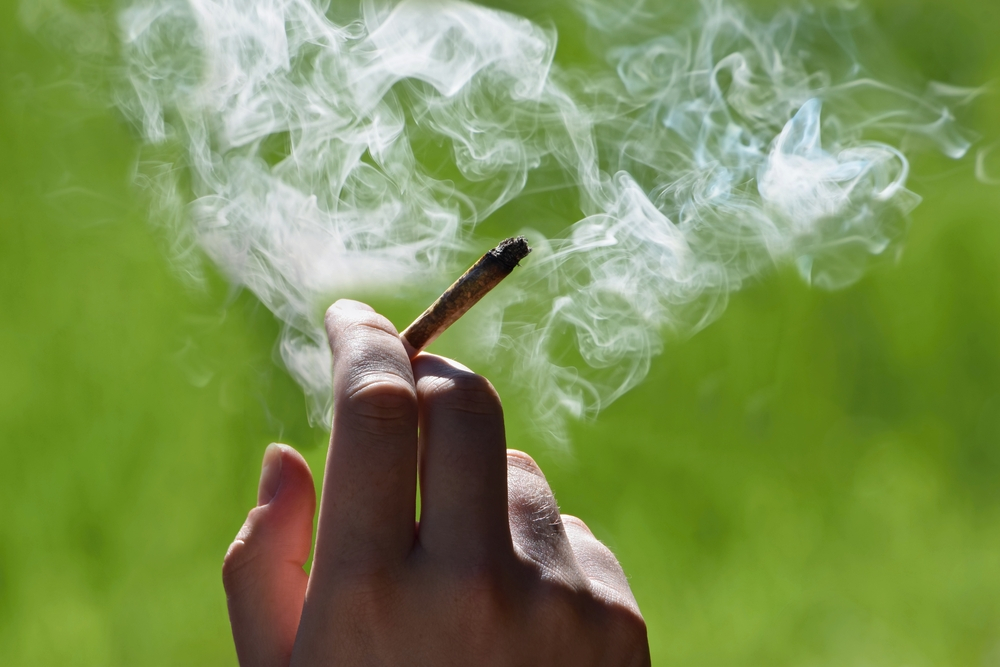
6. Marijuana Detox And Treatment
Just because marijuana isn’t as physically addictive as some other drugs doesn’t mean it’s not addictive at all. In fact, according to the National Institute on Drug Abuse, around 9% of people who use marijuana will become addicted to it.
So, if you or someone you know is struggling with marijuana addiction and looking for a way out, you’re not alone. And the good news is, there are effective treatments available to help you achieve sobriety.
One of the initialsteps in the treatment process is detoxification where marijuana is chased out of your system and managing any withdrawal symptoms you may experience. Now, we won’t sugarcoat it – withdrawal symptoms from marijuana can be unpleasant. You might feel irritable, anxious, and have trouble sleeping. But here’s the thing – these symptoms are temporary. With the right support, you can get through them and come out to the other side feeling better than ever.
After detox, the next step in the treatment process is a therapy where you’ll work with a therapist to uncover the underlying reasons behind your addiction and develop new coping skills to help you stay sober. This can include individual therapy, group therapy, or a combination of both. Look for a therapist who you feel comfortable with and who can help you address your specific needs.
Of course, treatment doesn’t stop once you’ve completed therapy. There’s more to the treatment journey with ongoing support which is crucial for maintaining sobriety over the long run. This might include attending support group meetings, checking in with your therapist periodically, and leaning on the people in your life who are supportive of your recovery.
We’re Rooting For You
When you’re no longer beholden to a substance, you’re free to live your life on your own terms which is the most wholesome feeling undoubtedly. You’ll have more energy, more clarity, and a sense of purpose that you might not have felt in a long time.
So, if you’re looking for marijuana detox and treatment, call us at +1 (917) 267 8635 and get guidance to a fulfilling life.






